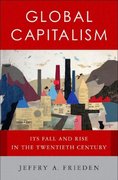Answered step by step
Verified Expert Solution
Question
1 Approved Answer
And according to Edison Key, a one-time citrus farmer from Abaco who is now chairman of the Bahamas Agricultural and Industrial Corporation, we are trying
And according to Edison Key, a one-time citrus farmer from Abaco who is now chairman of the Bahamas Agricultural and Industrial Corporation, "we are trying to fast forward the agricultural sector - we just need to get serious." Bahamian conditions are simply not conducive to commercial agriculture. Pineapple fields for example, had to remain fallow for 15 to 20 years after producing only a few crops, and the industry was never large enough to justify a regular steamship run ((as the banana trade did in the West Indies and Central America). Bahamians were "rooted to a soil that gave heartbreakingly meagre returns for the most backbreaking toil...There was nothing romantic about out island subsistence farming in the late 19th century. According to former prime minister Sir Lynden Pindling, it was to become "the greatest success story in Bahamian agricultural history", but it closed in disarray nine years later and was never resuscitated. In 1973, on 2000 acres of virgin land on Andros, an even bigger project was launched with even greater fanfare, heralded as "the capstone of Bahamian agricultural self-sufficiency". The Bahamas Agricultural Research Centre was funded by a $10 million Independence gift from the United States to develop commercial agriculture based on family farming. Two American universities provided technical support and the best and brightest young Bahamian technocrats were enlisted to help run the project - including Earl Deveaux, the present minister of works. The project included a 500-acre research farm, 16 model farms of up to 80 acres each, credit facilities, marketing support and training programmes. Government officials, including then agriculture minister Perry Christie, tried to cover up the failure. As a Tribune editorial railed at the time: "The government talks constantly of diversification; of developing agriculture to the point where Bahamians can feed themselves. Aside from political interference, our small labour force and the general disinterest most Bahamians have today in making a living from the soil, agriculture is a complex business that requires a great deal of infrastructure to distribute the crops and livestock that are produced. According to geographer Neil Sealey, in his text book, The Bahamas Today, our failure to develop a modern agricultural sector is due to a number of factors, including the reality that the Bahamas is a nation of merchants with a history of living on imported staples. Other reasons are competition from the United States, which produces huge farm surpluses at low cost only 50 miles from the nearest Bahamian island, and the limitations of our natural environment. In short, agriculture is a difficult and costly enterprise that few Bahamians are interested in pursuing. Last month Tribune columnist Adrian Gibson said successive governments had "slighted" Bahamian agriculture (completely overlooking the potted history presented above). 1. Identify the type of market failure being discussed and discuss why market failure occurs in this scenario. II. Suggest a relevant government policy that would yield the efficient outcome and carefully explain the process through which the implementation of the government policy will lead to the optimal outcome. III. How will the imposition of the chosen government policy impact consumer surplus, producer surplus and total surplus in this scenario
Step by Step Solution
There are 3 Steps involved in it
Step: 1

Get Instant Access to Expert-Tailored Solutions
See step-by-step solutions with expert insights and AI powered tools for academic success
Step: 2

Step: 3

Ace Your Homework with AI
Get the answers you need in no time with our AI-driven, step-by-step assistance
Get Started


